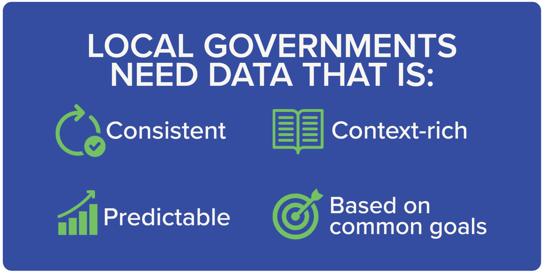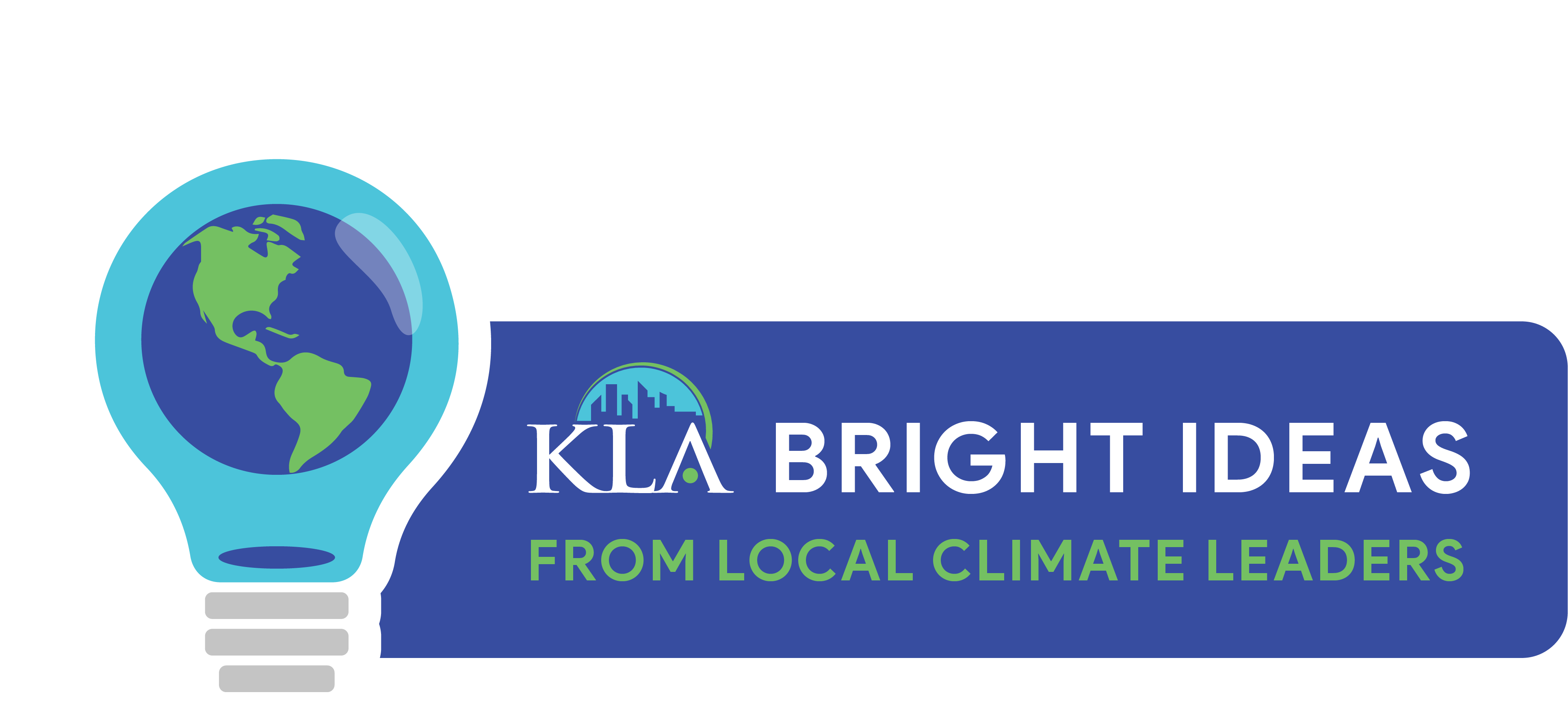KLA clients lead the way with innovative, scalable, replicable climate solutions at the local level.
Each month in 2022 we will shine a spotlight on their bright ideas.

 Guest post by Mike Steinhoff, KLA’s Director of Climate Analysis
Guest post by Mike Steinhoff, KLA’s Director of Climate Analysis
Local governments need access to consistent, high-quality data to develop and track progress on implementation of climate action plans. Massachusetts and other states are working to level the data playing field for more ambitious targets and results. In Massachusetts this has historically happened in fits and starts, but as they formalize more of these processes, we hope to see more agencies providing actionable information from the start.
We have a strong focus at KLA on the importance of data in the battle against climate change. But not all data is created equal. And the good stuff isn’t always easy to find or possible to access.
Ask any local government sustainability or climate staff if they’ve ever been stymied or frustrated by their search for data like “How many EVs are in my community?” or “How much energy did we use this year compared to last?”, and you’ll be flooded with examples. And on the other end, utilities and the like are hit with one-off requests at random from each city, town, county. Thus, they provide one-off responses with no guarantee of consistency.
States cannot meet ambitious greenhouse gas emissions reductions goals without local governments. It stands to reason that you don’t want them all trying to innovate independently or recreate the wheel. They would be wise to follow the lead of Massachusetts which has given its local governments and therefore itself a leg up in this arena by providing the funding, data and tools to align and achieve goals.

Specifically, Local Governments Need Data That Is:
Consistent
Take the Massachusetts vehicle census. That was a unique source of information about resident behavior and transportation energy demand for Massachusetts communities – quite helpful when planning bus and transit routes or thinking about EV infrastructure. But the most recent data is from 2014 and for years there has been no indication if it would ever be updated. What to do now if you need an update? Try to scale it with some assumptions, use something entirely different like highway traffic volumes? Many communities have diverged in their approach for various reasons, making their collective work inconsistent. With the passage of the 2022 Climate Bill, the form and timing of this update is now guaranteed, and communities will be able to rely on it for adaptive management in the complex mobility transformation that is underway.
Context-Rich
The MassSave data portal provides a solid trend of energy use from 2013 to 2019, but it lacks the context to interpret confidently. While this database has monthly MWh usage data broken down by local government and residential and commercial/industrial customers; it provides no information about the number of customers represented by that usage, how the information is queried and aggregated that anyone who is trying to put it to use will immediately want to know. That leaves local governments with additional work and some assumptions to better understand the data, especially trends over time.
In nearby New York, the NYSERDA Utility Energy Registry does include the number of accounts to remove that guesswork.
Some of this will change under the new Massachusetts climate law which, for example, will require the disclosure of the number of rebates (i.e., heat pump rebates) allocated by the state for each jurisdiction, which will be a tremendous help for tracking the pace of implementation. It remains to be seen if an update to the usage data in the MassSave portal will provide the metadata needed to empower local decision makers and make the resource truly useful.
Predictable
When you’re planning to develop a plan, knowing the timing of data releases saves time and resources that might be spent on clever workarounds to fill a gap for a short-term need. You don’t want to wrap a climate action plan and then new data is released 3 months later that would have changed your goals or tactics. States can set local governments up for success with predictable schedules for when new data will come out so that localities can start to orient their planning activities around when certain data will become available. The Massachusetts climate law codifies that. There are now specific dates by which certain agencies will have to release reports for example.
Common Goals
Some communities will want to race ahead with high ambition plans, but many are just trying to gauge how fast they will need to go to keep up with the pace of change that will be coming to all communities. Both the Massachusetts Decarbonization Roadmap and the 2025-2030 Clean Energy and Climate Implementation Plan provide benchmarks to hit and guardrails for reasonable assumptions with the information in these documents. If the State is planning for 19% of passenger vehicles to be electric by 2030, I know how many I need to plan for in my town. Thanks to an analysis of the future carbon intensity of the grid, I'll know just how much better they will be than a fossil vehicle as well.
It will take more than data to enact change, and both the state and federal government are ponying up money for localities to plan, assess and implement. The state is also incentivizing and rewarding efforts that are regional, innovative, ambitious and equitable. The less time they spend looking for basic climate planning data, the more time can be spent on these priorities which will keep Massachusetts cities and towns at the forefront of climate action.
KLA has worked with more than 25 Massachusetts local governments on their climate action plans or related work, and we can attest to the game changing nature of the MA Decarbonization Roadmap. This resource has helped to better quantify and anticipate the changes in electricity demand as we electrify buildings and transportation, as well as the capacity we have to restrain that growth with aggressive efficiency and new mobility options.
What is happening in Massachusetts illustrates the importance of a state making data more consistent, context-rich, predictable and getting local governments all on the same page.
Bottom line is that all states need to put their money – and their data – where their mouth is and create the conditions for transformational change when all cities row together.
Check out our Director of Climate Analysis Mike Steinhoff and other KLA team members in our "Get to Know KLA" video series.
February 2022: San Antonio Employee Climate Training Program
March 2022: Concord, MA, Heat Pump Coaches
April 2022: Encinitas, CA, Building Electrification Ordinance
May 2022: New Bedford, MA, Resilient, Equitable Green Infrastructure
June 2022: Devens, MA, Circular Economy Waste Reuse Hub
July 2022: Clark County, NV, Data Driven Equitable Engagement
September 2022: Columbia, MO, Heat Mapping
October 2022: Equity-centered Resilience Planning
November 2022: Video as a Powerful Climate Action Tool





